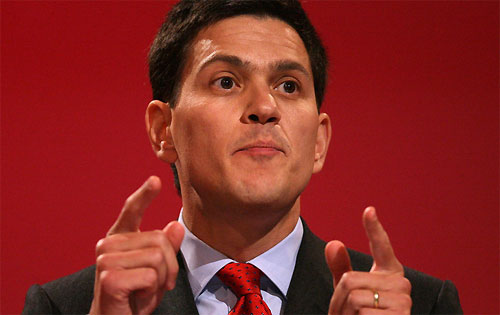|
Recent developments in Sri Lanka
By David Miliband Feb 24, 2010 | |
 David Miliband gave an update on recent developments in Sri Lanka in a Written Ministerial Statement to the House of Commons.
Read the statement:
Since the end of the fighting last May between the Government of Sri Lanka and the Liberation Tigers of Tamil Eelam there has been a unique opportunity for the government to work with all communities in Sri Lanka to achieve lasting peace through genuine national reconciliation. The UK has continued to make the case that that this can only come about through a fully inclusive political process to address the underlying causes of the conflict.
Elections
Election monitors and the Election Commissioner were united in declaring the result of the election valid. But they voiced concerns about aspects of the election campaign, including incidences of violence and allegations of electoral malpractice. We have been encouraging the government to address these concerns by conducting thorough investigations into any allegations and to encourage an atmosphere of calm by reaching out to those who did not support the President. There have, however, been worrying reports of a clampdown on those who did not support President Rajapakse. The arrest of his principal challenger in the election, Sarath Fonseka, has done nothing to ease tensions. The government needs to ensure that all detainees, including Fonseka, are treated strictly in accordance with Sri Lankan law. The next opportunity for Sri Lankans to elect their political representatives will be the Parliamentary elections that are expected to take place on 8 April. The Prime Minister has encouraged the President to ensure that measures are in place to remove the scope for allegations of malpractice. I have underlined to Foreign Minister Bogollogama the importance of making it possible for all Sri Lankans to vote. Whilst we welcomed the high national turnout in the Presidential election of 70%, this dropped to less than 30% in the north and east. An election in which all communities can select their representatives of choice could advance the prospects for genuine reconciliation. We will continue to engage with the government and other political parties in Sri Lanka to encourage a process of political reform. In recognition of the potentially positive contribution they could make to that process, we also continue to engage with the Tamil, Muslim and Sinhalese communities based in the UK. This includes the activities of Des Browne MP, the Prime Minister's Special Envoy for Sri Lanka. I will be addressing the forthcoming London conference of the Global Tamil Forum to encourage a forward-looking, constructive approach.
Accountability
Human Rights and GSP+
On 19 October the European Commission published its report into Sri Lanka's compliance with three of the conventions linked to Sri Lanka being a beneficiary of the GSP+ scheme. The report was clear about Sri Lanka's failings in its implementation of the International Covenant on Civil and Political Rights, the Convention against torture and other cruel, inhuman or degrading treatment or punishment, and the Convention on the Rights of the Child. The report reinforces our concerns about the human rights situation in Sri Lanka and we share the Commission's assessment. On 15 February the UK and other Member States supported the Commission's formal recommendation to withdraw GSP+ benefits from Sri Lanka. This will come into effect on 15 August, six months following the date of the decision. We continue to urge the government to engage constructively with the European Commission and to take all necessary steps to address the serious concerns highlighted in the Commission's report.
Humanitarian situation
Conditions in the camps have improved and there has been progress in the return of IDPs. UN official figures estimate that as of 15 January around 187,500 people have been released from the camps, of which 158,500 have been able to return to their home areas, whilst 29,000 vulnerable people have been housed with host families or in institutions. It is important that vulnerable people have been housed with host families or in institutions. It is important that IDPs continue to be able to return to their home areas as soon as it is safe to do so. The government's announcement on 1 December that all IDPs still in the camps would be granted freedom of movement was a positive step. However, some restrictions remain in place and we will continue to encourage the government to ease those. We will continue to work with international partners and with the Sri Lankan Government to encourage progress on reconciliation, accountability and human rights as a basis for the lasting peace all Sri Lankans want and deserve. Courtesy: Government of the United Kingdom
|
|
|
| |